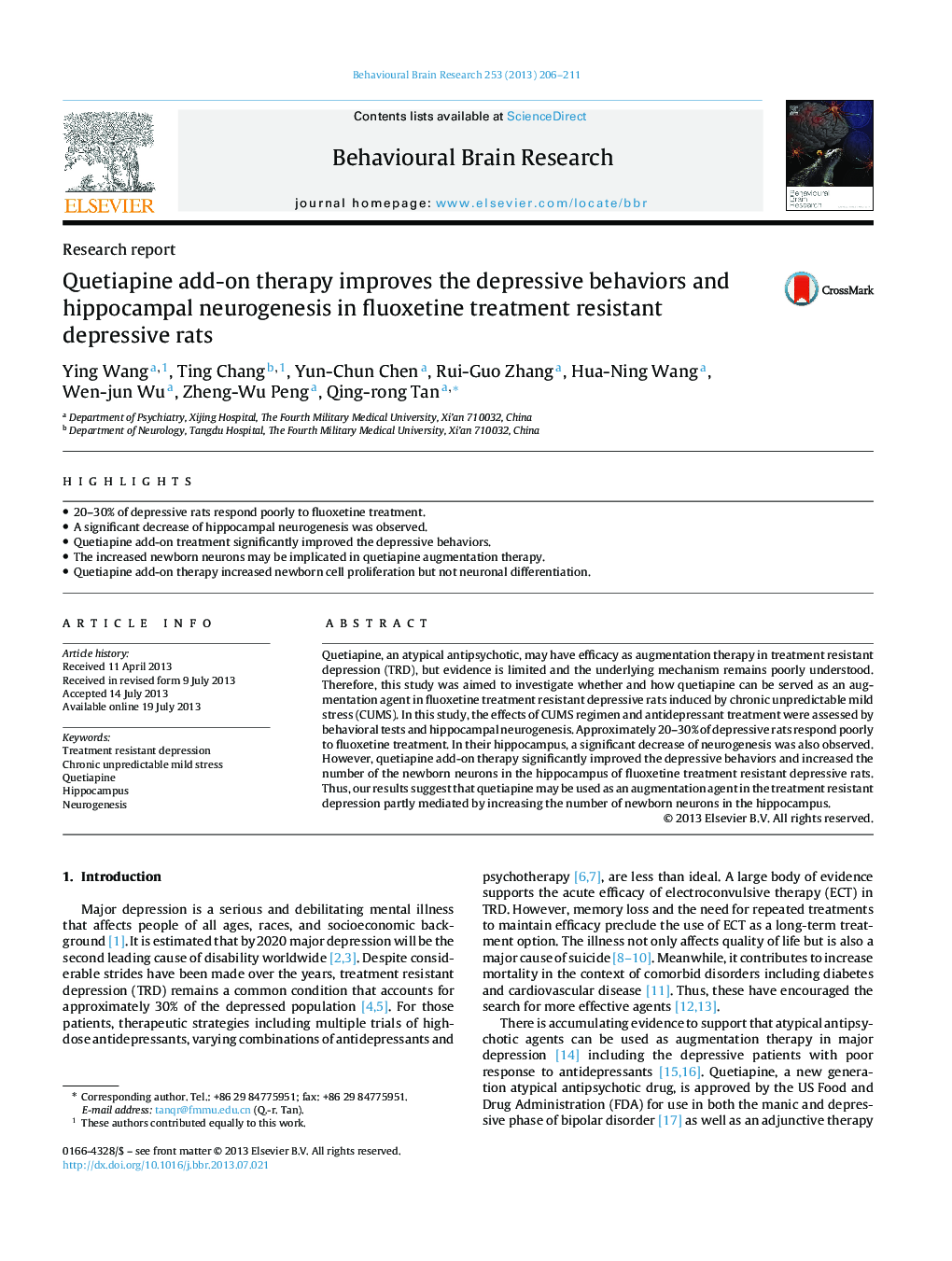| Article ID | Journal | Published Year | Pages | File Type |
|---|---|---|---|---|
| 6258668 | Behavioural Brain Research | 2013 | 6 Pages |
â¢20-30% of depressive rats respond poorly to fluoxetine treatment.â¢A significant decrease of hippocampal neurogenesis was observed.â¢Quetiapine add-on treatment significantly improved the depressive behaviors.â¢The increased newborn neurons may be implicated in quetiapine augmentation therapy.â¢Quetiapine add-on therapy increased newborn cell proliferation but not neuronal differentiation.
Quetiapine, an atypical antipsychotic, may have efficacy as augmentation therapy in treatment resistant depression (TRD), but evidence is limited and the underlying mechanism remains poorly understood. Therefore, this study was aimed to investigate whether and how quetiapine can be served as an augmentation agent in fluoxetine treatment resistant depressive rats induced by chronic unpredictable mild stress (CUMS). In this study, the effects of CUMS regimen and antidepressant treatment were assessed by behavioral tests and hippocampal neurogenesis. Approximately 20-30% of depressive rats respond poorly to fluoxetine treatment. In their hippocampus, a significant decrease of neurogenesis was also observed. However, quetiapine add-on therapy significantly improved the depressive behaviors and increased the number of the newborn neurons in the hippocampus of fluoxetine treatment resistant depressive rats. Thus, our results suggest that quetiapine may be used as an augmentation agent in the treatment resistant depression partly mediated by increasing the number of newborn neurons in the hippocampus.
